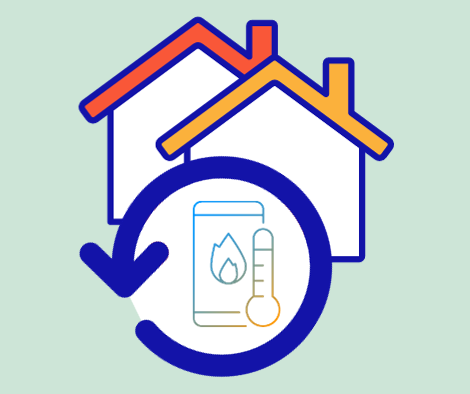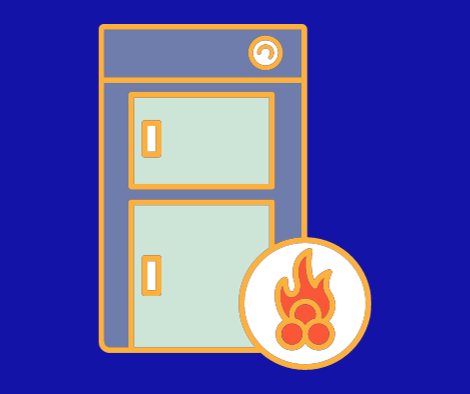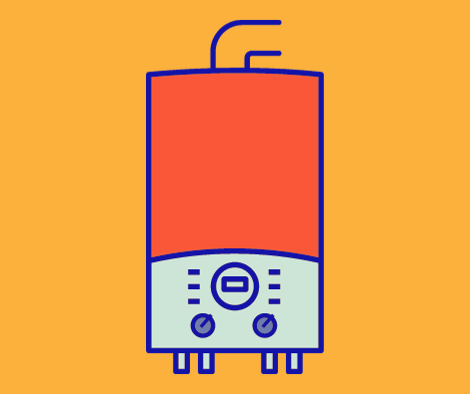The downside to a heat pump includes the upfront cost, especially for systems like geothermal ones. Additionally, the efficiency of heat pumps can be impacted by extreme temperatures, leading to increased energy consumption during such periods.
Heat pumps offer the advantage of providing both heating and cooling functions, making them more versatile than traditional air conditioners which only provide cooling. They are also more energy-efficient, particularly in moderate climates. However, in extremely cold climates, heat pumps may become less efficient.
Generally, yes. Heat pumps are more economical in terms of electricity consumption, resulting in lower operating costs compared to traditional heating systems like furnaces or boilers. However, the upfront cost of purchasing and installing certain heat pump systems, especially geothermal ones, may be higher.
One major problem with heat pumps is their sensitivity to extreme temperatures. When temperatures drop too low, especially in colder climates, heat pumps may struggle to operate at their most effective level, leading to temporary increases in energy consumption. Additionally, proper installation is crucial for ensuring adequate heating, especially in colder climates.
Heat pumps are relatively new in popularity but are beginning to become as familiar and loved as traditional HVAC systems. Despite heat pump technology existing since 1856, its only been in recent years that there has been quite a lot of advancement in technology, making them a highly competitive product within the HVAC market today. When researching, it can sometimes be challenging to sort through the differences between the many heating and cooling systems available to homeowners. So, in this blog, we will compare heat pumps with the other common types of heating systems so you can become more informed before discussing installation or maintenance with your HVAC technician.
Aside from heat pumps, the most common heating systems are furnaces, boilers, and direct heaters (space heaters, stoves, and fireplaces). These days, however, it’s rare to find direct heaters as the primary heat source of a home, so for the sake of simplicity, we’ll leave them out of this blog. However, if you have any questions on the topic of direct heaters, feel free to consult with us or reach out to your local HVAC technician.
How Heating Systems Work

Traditional systems use a 1:1 system. The amount of energy (gas, oil, or electricity) put into the system is the same amount that is expelled as heat. Furnaces burn gas or oil, and this combustion process is transferred to a heat exchanger, allowing the heat to be blown throughout the building. Boilers work similarly, but instead of transferring the heat to an exchanger, they transfer it to water or produce steam. The water is then circulated throughout the building to create heat in the home or building.
A heat pump, however, works very differently than these systems. A heat pump uses energy (in the form of electricity) to gather heat instead of producing it. In doing so, the heat pump can produce three to four times more heat in a room. A heat pump is able to do so with the help of a refrigerant. A refrigerant is a compound that can absorb heat from outside, even in the coldest of climates, or from the ground (for geothermal heat pumps). The system uses the refrigerant to transfer heat from outside the building and into the home or business.
Pros & Cons
Heat Pumps

Pros
- Energy Efficiency: Offering three to four times more heat with the same amount of energy input as other types of heating systems makes heat pumps more economical in terms of electricity consumption which, in turn, is excellent for the environment.
- Lower Operating Costs: Heat pumps lower energy costs thanks to their energy efficiency and reduced reliance on expensive fuels.
- Long Lifespan: When properly maintained, modern heat pumps last about 15 years.
- Year-Round Comfort: The heat pump process can be reversed to provide cool air during the warmer months in addition to its heating abilities.
- Government Incentives: Many states provide rebates for heat pump purchases.
- Reduced Carbon Footprint: Heat pumps don’t directly burn fossil fuels, which helps them reduce air pollution and greenhouse gas emissions.
- Consistent Performance: Heat pumps are reliable and require less maintenance than traditional systems.
- Safety: Heat pumps operate without combustion, reducing the risk of fire hazards.
- Quiet Operation: Heat pumps are known for being a quieter technology.
- Zoning Possibilities: Being able to zone different areas of the home improves comfort and reduces energy bills.
- Less Space Requirement: Heat pumps are generally more compact.
- Flexibility: Heat pumps are compatible with ducted and ductless buildings.
Cons
- Upfront Cost: The initial investment for purchasing and installing certain heat pump systems, such as geothermal systems, can be higher compared to some traditional heating systems.
- Installation Complexity: Proper installation is crucial because if the system isn’t sized correctly to the house, it won’t heat adequately, especially in colder climates.
- Weather Impacted Efficiency: Temperatures can drop too low for a heat pump to work at the most effective level, which may lead to a temporary increase in energy consumption.
Furnaces

Pros
- Effective Heating: Furnaces are a reliable source of heat.
- Widespread Applicability: Furnaces can be used in most types and sizes of buildings.
- Affordability: Some find replacing an old furnace with a new one more affordable upfront.
- Consistent Performance: Furnaces operate when they are well-maintained with unwavering consistency.
- Respectable Lifespan: Furnaces last 15-20 years.
Cons
- Energy Efficiency Concerns: Furnaces aren’t as efficient as heat pumps.
- Environmental Impact: Furnaces that burn fossil fuels contribute to air pollution and greenhouse gas emissions.
- Higher Operating Costs: Fuel prices can be high.
- Limited Versatility: Furnace systems can’t cool a home, and so another system must be purchased for air conditioning.
- Safety Concerns: Furnace combustion poses a risk of carbon monoxide leaks.
- Space Requirements: Furnaces are large and require ductwork installation if there isn’t any in the home.
- Noise Levels: Furnaces can produce noises that some find disruptive when operating normally.
- Ductwork Maintenance: Ductwork systems need to be cleaned regularly.
- Dependency on Fuel Availability: Depending on where you live, you’ll need to plan carefully to ensure that you have enough gas or oil, especially if there’s a shortage.
- Limited Zoning Options: Some furnaces do not offer zoning capabilities, meaning every room must be at the same temperature.
Boilers

Pros
- Excellent Heating Distribution: Boilers provide even and consistent heating throughout the home or building.
- Significant Lifespan: Well-maintained boilers can last around 20 years.
- Energy Efficient Options: Some boilers, particularly condensing boilers, can be energy-efficient enough to lower operating costs.
- Zoning Possibilities: Some boiler systems allow for zoning which is an excellent way to improve comfort and reduce energy bills.
Cons
- Upfront Cost: The initial cost of purchasing and installing a boiler system can be higher than other options.
- Space Requirements: Boilers and their components (radiators, piping, etc.) require enough space for installation.
- Complex Installation: Installing a boiler system can be complicated and disruptive if the pipes and other components need to be installed or replaced.
- Water Leakage: The use of water in boiler systems poses a risk of water damage if not addressed promptly.
- Environmental Impact: Boilers that burn fossil fuels contribute to air pollution and greenhouse gas emissions.
- Corrosion: Hard water can increase the need for maintenance over time due to corrosion.
- No Cooling Options: Boilers can only be used to heat a home, requiring the installation and maintenance of a cooling system.
- Dependency on Fuel Availability: Boilers depend on the availability and cost of fossil fuels.
It is essential to remember that there’s never a one-size-fits-all answer to what heating system is suitable for a particular individual, family, home, or business. Heat pumps, furnaces, and boilers all have their merits and drawbacks. Whether embracing the innovation of heat pumps or relying on the time-tested methods of traditional systems, we hope you find the right system for you.
If you are looking for expert advice about your HVAC options in New England, contact the National Refrigeration team, and we’ll find the right solution for you.
Whether you need 24-7 emergency service or advice on improving your everyday air quality and comfort—at home and work—call us at 401-737-2000 or email us.

